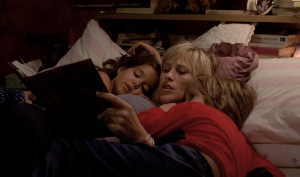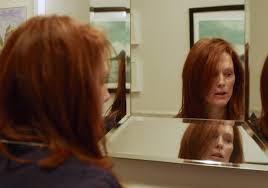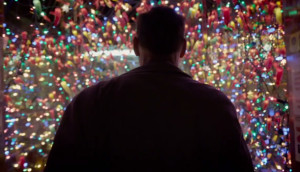Let’s start from a generally uncontroversial place: The Oscars are nonsense. Just utter bullshit. We are idiots for paying a single moment of attention to them.
And yet. Like many goofballs, I can’t turn away. It’s like playing craps in one of the less reputable Vegas casinos, in downtown rather than on the Strip. I just want to play, even if I end up losing my house somehow, in $5 increments, getting odds on 10 and saying “$10 for the dealer” on a hard 12, like an asshole. Come to think of it, I don’t even own a house!
A real gambler, however, wants to know how the game turns out. Even if you don’t like the game, or care about the players. This is the curse of the fucking Academy Awards, the biggest, silliest game in town. It’s like the Final Four for movie nerds. (Note to some of you movie nerds: the “Final Four” relates to college basketball. It’s basically the semifinals. Thing is, the groupings are complicated and determined by … eh, forget it, it’s Basketball Town.)
So the Oscars (much like basketball, candidate elections, workplace personnel evaluations, and so forth) are fucking bullshit. But even those who angrily denounce them, for frequently valid reasons, know their denunciations are “part of the conversation,” as they say. Some people are mounting hopelessly toothless protests to draw attention to the Academy’s overwhelming whiteness, but I suspect most have stopped caring.
It’s still an industry game, on each and every side. Your enthusiasm for industry self-congratulation is directly proportional to your access, as is your rage. In an appropriately meta formulation, and one impossible outside of the confines of late capitalism, the anti-Oscar protests double as commercials, or as weird doppelgangers to the lobbying campaigns that the companies mount. If I squint, it’s hard to tell them apart. I’d think an actual anti-Academy voice would be embarrassed to bring the Oscars up — it’s sort of weird to demand exposure through the same compromised systems you critique. Counter-progamming that announces “It is extremely important you do not pay attention to this, which is why we are drawing your attention to it” is puzzling.
I don’t doubt people’s sincerity … but I do doubt their efficacy, and even their honesty. Since when did anyone think getting an award mean being the best? The doling out of industry awards is by definition a political process, rife with assumptions of cultural value but mainly driven by inside-baseball nonsense and more or less random voting. Why would we look to commercial institutions for movie picks? I’m a cynic, I realize, but really. We like to think of the Oscars as somehow particularly prestigious and value-neutral, which is about as far away from the truth as possible. It’s an awards show after all, a canon-creating mechanism and sales-driven enterprise staffed by professionals who, like everyone else, have limited time and vested interests. This whole thing can have positive consequences (raising the profile of great films people might not have heard of, at a bare minimum), but it’s a supremely fucked system.
My system, on the other hand, is flawless. Unencumbered my the political constraints of The Academy, and more generally free of the iron heel of The Man, here are some movies I saw and some things I think about them. (Note: if you want to pay me, or even buy me dinner, I will totally change my votes.)
I broke them up into three metrics:
(1) What will win (my guess of Oscar voters);
(2) What should win, of the nominations I’ve seen; and
(3) What should’ve been nominated.
Ok, let’s do this thing.
Best Picture
Will win – Birdman
There are two real choices: Birdman and Boyhood. I think Academy voters will be flattered by the life-and-death struggle for transcendence through Art. Unlike Scott Tobias, I didn’t find Birdman “fraudulent,” but it didn’t resonate for me at all, but I’m also not an Academy voter. I think it wins here: a triumphant, self-conscious return to glory for Michael Keaton, a dazzling script focused on artistic integrity vs. commerce, light satire of industry types. It reads like a Best Picture to me.
Should win – Boyhood
Boyhood is not just a thinkpiece-generating machine; it’s a legitimate marvel. It’s the movie of the decade, not just the year.
Not nominated – Under The Skin
Everything about Under The Skin is evocative and out of time. The manner in which it’s shot (often surreptiously), Scarlett Johanson’s astounding performance, and the film’s design and sound all indicate otherworldliness, without even once tipping its hand. It examines patriarchy, the male gaze, and bodies more generally in unexpected and unforgettable ways, and fashions a new approach, from the outside in. It’s the best movie of the year.
Best Director
Will win – Richard Linklater, Boyhood
I think Academy voters will split the difference between their desire to honor the craft of performance (via Birdman) and their recognition that what Linklater accomplished is unprecedented and kind of bonkers.
Should win – Richard Linklater, Boyhood
As they should. Frankly, I could give a fuck about Birdman. The trials and tribulations of creative types isn’t really my thing – true story, there are other people in the world! Sorry, creative types, it’s hella true! – though I admired how seamlessly it was put together (see below). But Linklater is, as I keep saying, our cinematic poet of time. This was true in Dazed and Confused, and this surely was true in the 7-year time-lapse between installments of the Before trilogy (for which he really should’ve been given all the awards). But to film scenes annually over 12 years, to retain these collaborators, to watch people age on camera and yet integrate them into a coherent narrative, drawing from their difference and sameness, and the ways in which we, as viewers, navigate a world we’re never quite sure about? It’s never been done and might never happen again. This is lightning in a bottle shit. Give him the thing, seriously.
Not nominated – James Gray, The Immigrant
James Gray is the most unappreciated American filmmaker working today, and The Immigrant is a masterpiece. Over the course of five films, he has established himself as both a tragedian and a goof, mining working-class realities for pathos and uneasy laughs. The Immigrant’s final scene was the most affecting thing I saw in 2014, and Marion Cotillard should’ve been nominated for this one, too. But she can’t do it alone, nor can my favorite actor Joaquin Phoenix, in his second-best performance of the year. Nope: the cumulative impact is all Gray, and it’s devastating and epic in scope and it demands recognition, and fans.
Best Actor
Will win – Eddie Redmayne, The Theory of Everything
I did not see this movie, but I think it will win. Let Jen Chaney explain.
Should win – Michael Keaton, Birdman
I am on record as disliking Birdman. I thought it was self-indulgent and annoying and kind of rapey, and I couldn’t give it a pass just because it also thought (and said) it was self-indulgent and annoying (though its meta-thoughts on rapiness were not included, likely because no one noticed). I was reminded of a guy I met once who’s like, “Look, I realize this might be annoying …” and then goes on, annoyingly, for a while? Do you know this guy? He sucks, and Birdman was sort of like that.
But! Michael Keaton saved the day. He threads the needle: he’s insufferable, incredibly put upon, full of shit and bravado and fear, and he carries the film on his back like a fucking soldier for art. He’s the only real person in the film, and the only reason to watch it. (Sorry not sorry, Ed Norton.)
Not nominated – Ralph Fiennes, The Grand Budapest Hotel
Wes Anderson is not “due” for an Oscar. In fact, there’s something incongruous and strange about the whole notion. Perhaps if Oscars were doled out in treasure hunts on remote islands, and you could only use whimsical vehicles to find them, after you were laid off from the licorice shoppe or whatever, then it would make sense.
Be that as it may, The Grand Budapest Hotel is a showcase for Ralph Fiennes, the funniest man you didn’t realize was funny. Comedies are routinely scorned at award ceremonies, and comic actors who blend melancholy into their delivery even more so. Fiennes deadpans his way into Anderson’s sensibility, and gives a master performance. Like many an Anderson character, his humor is connected to his sadness and loss. Here, that contradiction is raised to a fever pitch. Fiennes never slows down.
Best Actress
Will win – Julianne Moore, Still Alice
I did not see this movie. I read about it and think she’ll win. Oscar likes sick/transformative. What, it’s true. I can’t go seeing every fucking movie. Gosh.
Should win – Rosamund Pike, Gone Girl
With all apologies to fans of the book and/or David Fincher, I despised this film. I thought it was a fucking travesty, and maybe the most misogynist film I’ve seen since American Beauty. Rosamund Pike, however, was believable (roughly 75% of the time), and her narration gave the movie the tiny bit of impact it mustered. So, like a proper Academy voter who only saw one nominated movie, she gets my vote. But seriously, fuck this movie.
Not nominated – Jenny Slate, Obvious Child
Obvious Child was one of the best movies of the year, and Jenny Slate was the reason why. Apart from the script or characterization, she brought a warm, kind-hearted, awkward, and shameless vibe that animated the whole movie. Her stand-up is funny; her frantically diving behind trash cans to escape notice while standing outside her ex’s house, engaged in what she calls “light stalking,” is funnier. And her start-stop-ok-start-fuck-I-dunno romance in the film rings so true I want to go buy her a drink. Obvious Child is great for a lot of reasons, and most of those reasons are Jenny Slate.
Best Cinematography
Will win – Birdman
The illusion of a single tracking shot has tripped everyone out. That includes Academy voters. In fairness, it’s enormously effective in conveying the close confines and anxiety.
Should win – Ida
Shot in boxy Academy ratio and luminous black and white, Ida is the stand-out. The entire world seems to impinge on the characters – they are routinely positioned at the bottom of the frame as the world looms above them. There’s no escape from history, and even illusions of agency aren’t going to cut it. Its characters’ powerlessness is underscored again and again. Ida is a haunting vision of loss and discovery, and a huge chunk of this is conveyed through the compositions of the images. A quick test: imagine if this film was shot in some other fashion (in color, shaky handheld, etc.). That would suck, right? Yeah, it would.
Not nominated – Inherent Vice
As a longtime Pynchon reader and a somewhat less longtime P.T. Anderson fan, I was stoked for Inherent Vice. Others seem not to have been in the same boat, if cursory internet readings are any guide. But it was one of my favorite movies of the year, not least because of how faithfully it conjured the 70s through its images. The film itself is indebted to Robert Altman’s The Long Goodbye thematically, but more than anything, it’s the film stock, the tones, the washed-out palette that recalls the period, and makes it happen. To steal a line from someone who I’m too lazy too look up, it looks like the last great movie of the mid-70’s. Which suits Pynchon just fine, I think






